Aliaksandr Birukou
Improving Editorial Workflow and Metadata Quality at Springer Nature
Mar 24, 2021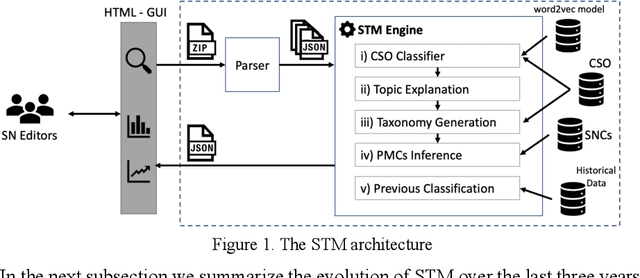

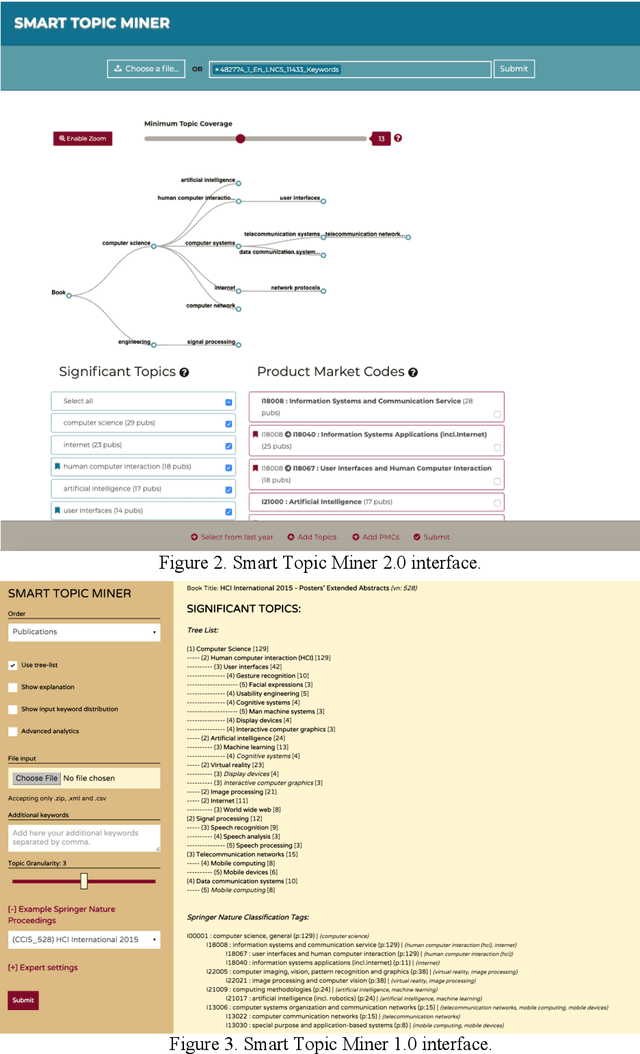
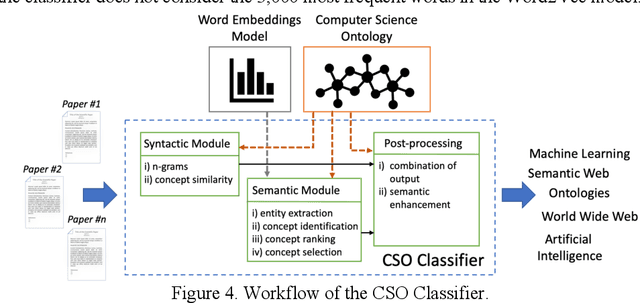
Abstract:Identifying the research topics that best describe the scope of a scientific publication is a crucial task for editors, in particular because the quality of these annotations determine how effectively users are able to discover the right content in online libraries. For this reason, Springer Nature, the world's largest academic book publisher, has traditionally entrusted this task to their most expert editors. These editors manually analyse all new books, possibly including hundreds of chapters, and produce a list of the most relevant topics. Hence, this process has traditionally been very expensive, time-consuming, and confined to a few senior editors. For these reasons, back in 2016 we developed Smart Topic Miner (STM), an ontology-driven application that assists the Springer Nature editorial team in annotating the volumes of all books covering conference proceedings in Computer Science. Since then STM has been regularly used by editors in Germany, China, Brazil, India, and Japan, for a total of about 800 volumes per year. Over the past three years the initial prototype has iteratively evolved in response to feedback from the users and evolving requirements. In this paper we present the most recent version of the tool and describe the evolution of the system over the years, the key lessons learnt, and the impact on the Springer Nature workflow. In particular, our solution has drastically reduced the time needed to annotate proceedings and significantly improved their discoverability, resulting in 9.3 million additional downloads. We also present a user study involving 9 editors, which yielded excellent results in term of usability, and report an evaluation of the new topic classifier used by STM, which outperforms previous versions in recall and F-measure.
Ontology-Based Recommendation of Editorial Products
Mar 24, 2021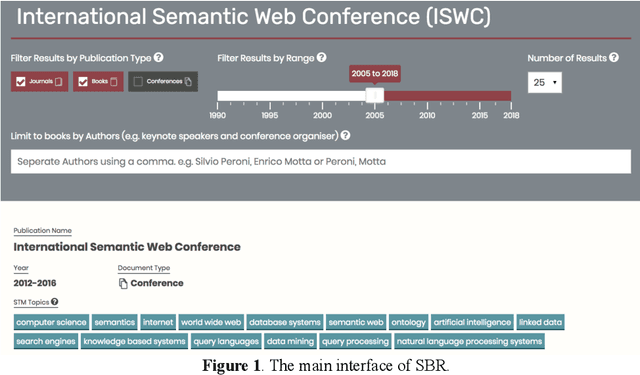
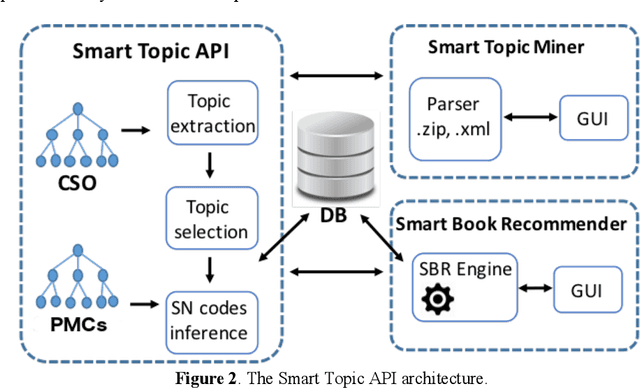
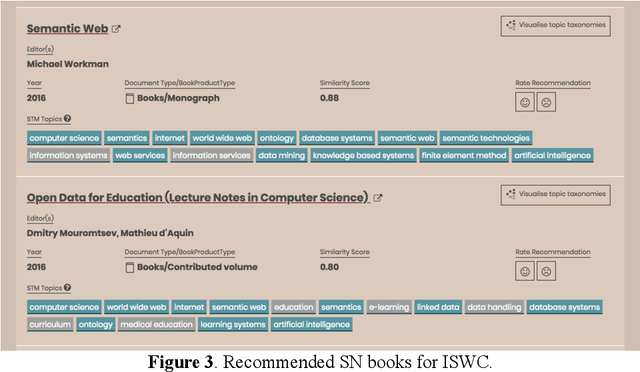
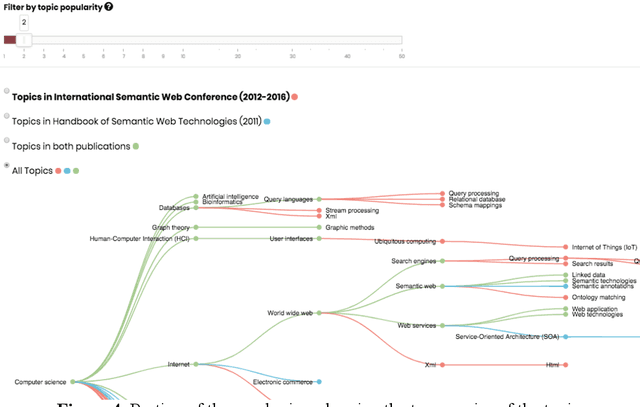
Abstract:Major academic publishers need to be able to analyse their vast catalogue of products and select the best items to be marketed in scientific venues. This is a complex exercise that requires characterising with a high precision the topics of thousands of books and matching them with the interests of the relevant communities. In Springer Nature, this task has been traditionally handled manually by publishing editors. However, the rapid growth in the number of scientific publications and the dynamic nature of the Computer Science landscape has made this solution increasingly inefficient. We have addressed this issue by creating Smart Book Recommender (SBR), an ontology-based recommender system developed by The Open University (OU) in collaboration with Springer Nature, which supports their Computer Science editorial team in selecting the products to market at specific venues. SBR recommends books, journals, and conference proceedings relevant to a conference by taking advantage of a semantically enhanced representation of about 27K editorial products. This is based on the Computer Science Ontology, a very large-scale, automatically generated taxonomy of research areas. SBR also allows users to investigate why a certain publication was suggested by the system. It does so by means of an interactive graph view that displays the topic taxonomy of the recommended editorial product and compares it with the topic-centric characterization of the input conference. An evaluation carried out with seven Springer Nature editors and seven OU researchers has confirmed the effectiveness of the solution.
 Add to Chrome
Add to Chrome Add to Firefox
Add to Firefox Add to Edge
Add to Edge